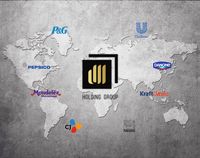DLL Holding Group
The DLL Holding Trading Group is an international trading company based in Germany. DLL is a consumer goods GROUP represented in 10 countries with headquarters in Duesseldorf and Singapore.
DLL employed 260 people in over 10 countries worldwide in 2022. Around 34 people were employed in Germany in 2022.
Target audience millennials
In order to reach younger target groups, the corporations have to turn their marketing inside out. "30 years ago it was clear: If you want to advertise a detergent or shampoo, it's best to place an ad before 'Wetten, dass'...?'. But those days are over," says Dr. Despont Television is losing market share, channels to reach consumers are becoming more diverse.
Digitalization
Especially in the consumer sector, market shares can be gained quickly with digital strategies – even by newcomers. This is shown in the beauty sector by direct sales brands such as Glossier or "Kylie Cosmetics" by influencer Kylie Jenner, which are growing rapidly. Estée Lauder is the benchmark of the giants: The US group manages to harmonize the shopping experience in traditional retail with e-commerce - through an omnichannel strategy and targeted branding in social media, where the group increased the number of its postings in 2021 in the compared to the previous year has doubled. It is not for nothing that competitors such as L'Oréal are trying to use similar strategies, for example in influencer marketing.
Big Player
The ranking is dominated by the Nestlé group, which generated sales of 93.4 billion dollars, followed by Procter & Gamble and PepsiCo. There have been no shifts in the first seven places compared to the previous year.
New sales markets




